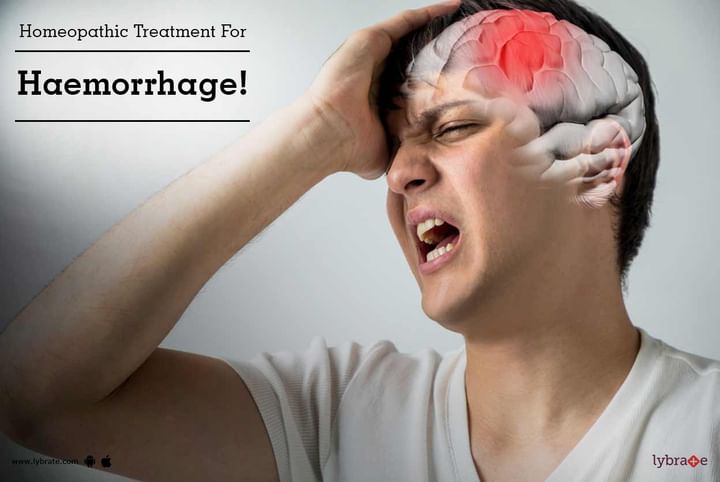Homeopathic Treatment For Haemorrhage!
The term haemorrhage refers to the escape of blood from the vessels through which it runs and the discharge can be either into the internal cavities or in the external regions. Profuse as well as long drawn haemmorrhages can be dangerous and lead to serious outcomes. In some individuals there exists a predisposition which can either be acquired or hereditary and comprises defective contractility of affected arteries. The common haemorrhages can be of three types namely arterial, venous and capillary, and the special types are accidental, antepartum, cerebral, concealed, contrecoup, extradural and intradural haemorrhage. Regardless of the haemorrhage you are suffering from, homeopathy can offer you a solution to your ailment.
What are the symptoms of internal haemorrhage?
Internal bleeding is quite difficult to detect and in some cases it may not be identified for many hours after it starts. Symptoms may only take place when there is severe loss of blood and when the blood clot is big enough for compressing any organ, leading to its inability to function properly. Some people are affected with inborn and genetic errors of blood clotting and in such cases minor injuries can cause a heavy bleeding. Von
Willebrand’s disease and haemophilia are two instances of hereditary clotting disease.
There are several homeopathic medications, including secale, trilium, ipecac, hammelis and cinchona, along with various others that can be used for the treatment of haemorrage. However, it is best to consult an expert for availing medicines that are ideal to treat your individualistic health complication.
How can homeopathy treat haemorrahage?
Homeopathy aims to treat an individual as a whole instead of focusing on the affected area or the concerned ailment only. So when you are suffering from haemorrahage, your doctor will evaluate all the relevant aspects of your health that include assessment of the physical and mental conditions, present symptoms, underlying pathological conditions as well as possible causative factors. Some people have a tendency to choose medications on their own and administer them, but it is advisable to not take things into your own hands as a haemorrhage is a broad aspect and shouldn’t be experimented with.
It is important to check whether you are susceptible to any kind of haemorrhage and get proper homeopathic medication. It is important to maintain a low blood pressure and stay away from all kinds of activities that can induce heavy gravitational force and stay as stress free as possible. If you wish to discuss about any specific problem, you can consult a Homeopath.



+1.svg)
